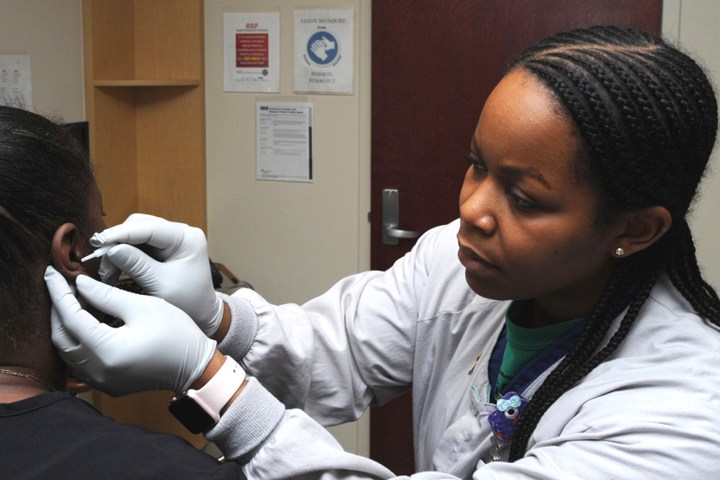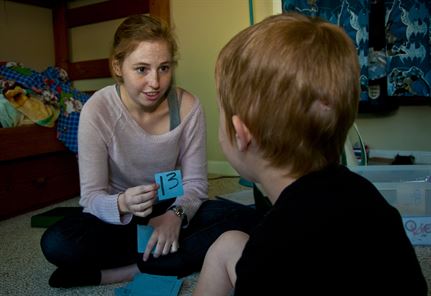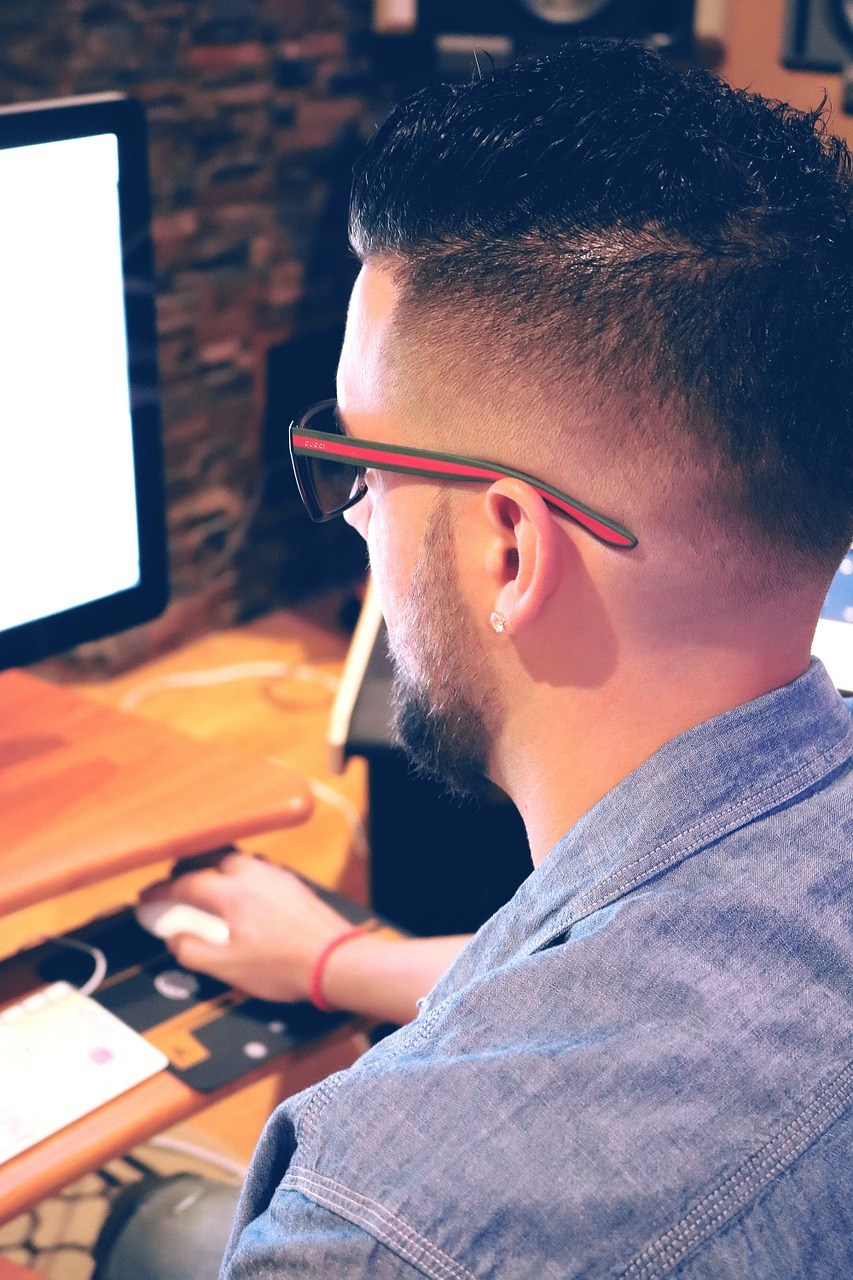how to become a behavior analyst
By: Margaret Wack
Updated January 28, 2021
Medically Reviewed By: Stephanie Beebe, MSW, LISW-S
What Is An Applied Behavior Analyst?
As the name implies, applied behavior analysts study behavior. Applied behavior analysts can study a wide variety of actions, situations, and environments, depending on their particular interests and specialties. These specialists often focus on the practical applications of psychological research, and work with patients to analyze and change potentially harmful behaviors.

Source: health.mil
Applied behavior analysts often work directly with individuals who struggle to control their behavior. They can come up with treatment strategies, help patients to form new behavioral patterns, and uncover the reasons behind unwanted behaviors to change them. In particular, applied behavior analysts may work with patients who need help navigating behavior differences caused by autism, developmental disabilities, behavioral disorders, emotional disturbances, and other mental health issues.
What Is Behavior Analysis?
Behavior analysis largely developed from behaviorism, a school of psychological thought that developed over the twentieth century. Behaviorism focuses on human behavior and theorizes that, to enact behavioral changes, particularly about mental health, it is necessary to focus on the behaviors themselves, rather than on any other psychological or environmental causes.
Behavioral analysis works to study and uncover the laws that govern human behavior. While human behavior might at first seem random or inexplicable, there are, in fact, often simple changes of cause and effect that influence behavior. Once the causes of particular behaviors have been discovered, behavior analysts can work to change or correct that behavior. Until the causal mechanism behind behavior itself is fully understood, behavior analysis posits that theories about psychology or mental health are missing crucial information.
In practice, behavior analysis focuses on helping individuals change their behavior. Applied behavior analysis, also called ABA, can take the form of behavioral therapy. It may also include giving guidance to supportive figures, such as parents, guardians, or others. Applied behavior analysis is a type of therapy that focuses particularly on behaviors. It places a special focus on social skills, motor skills, academics, daily tasks and responsibilities, and more. Applied behavior analysis can be an effective way to change and improve certain behaviors, and to instill new, beneficial habits in patients who are struggling with specific activities in their day-to-day lives.
What Do Applied Behavior Analysts Do?
Applied behavior analysts work with patients to steer them towards healthy behaviors and away from harmful ones. Applied behavior analysts may work with patients with a variety of mental illness, including autism, mental illness, emotional distress, learning, developmental disabilities, and more.

Source: jbcharleston.jb.mil
Work Directly With Patients
Applied behavior analysts work directly with patients to correctly diagnose and treat their behavioral issues. These may include trouble focusing, inappropriate outbursts, trouble completing assignments for work or school, and other issues. Most patients require individualized treatment. The appropriate treatment can vary from individual to individual depending on their particular issues, the severity of their symptoms, and their response to different potential approaches.
Applied behavior analysts develop individualized treatment plans for each patient to help them achieve their behavioral goals. Applied behavior analysts also spend time observing and studying each patient in order to determine their behavioral challenges and to come up with solutions that work for each particular situation.
Work With Other Medical Professionals
While an applied behavior analyst most often works closely with the patient themselves, there are also a variety of other medical professionals who work with the patient who is under their supervision. This supervision can be direct or indirect and usually involves implementing a particular treatment plan across a wide variety of professions. The entire team can include doctors, therapists, nurses, assistants, and other analysts.
Applied behavior analysts are usually involved in everything that goes on in a particular patient's behavioral treatment. They are often in charge of implementing a particular treatment plan across several different spheres of intervention. They also ensure that the patient receives the proper care, even when they are not working directly with them.
Communication And Oversight
Another primary responsibility of an applied behavior analyst is to communicate with everyone who is involved in a patient's treatment. Applied behavior analysts may travel with patients to other appointments or visit them at their homes. Also, the applied behavior analyst communicates with other medical professionals to coordinate the patient's treatment plan and to answer any questions or concerns that they might have.
Training And Instruction
In addition to their other responsibilities, applied behavior analysts also work to train others to help patients manage their behavior effectively. In particular, applied behavior analysts often work with parents and guardians to inform them of appropriate strategies for dealing with a patient's behavior. They may work to help people understand the causes and circumstances surrounding particular behaviors, and to implement strategies to change or mitigate certain behaviors in the future. They can also often lead training programs that encourage groups of parents, guardians, or authority figures to learn more about behavior analysis and to understand the treatment needs of patients better.

Source: jbcharleston.jb.mil
Who Applied Behavior Analysis Helps
Applied behavior analysis can be used to help a wide variety of patients with different backgrounds and needs.
Autism
One of the primary uses of applied behavior analysis is in the treatment of patients with autism. Applied behavior analysis can help people with autism to learn new skills, improve social skills and behaviors, and to control particular impulses when they might not be appropriate to a given situation. Applied behavior analysis is particularly effective in children under the age of four.
Adults With Memory Loss Or Disabilities
Applied behavior analysis can also be an effective treatment for adults with a variety of different developmental and progressive disabilities. Adults with developmental disabilities can benefit from a behavioral approach that helps to teach healthy strategies for changing behavior and encourages good decision-making. Patients experiencing aging, memory loss, and dementia may also benefit from applied behavior analysis, as it focuses particularly on behavior, and may allow them to form new habits and routines.
How To Become An Applied Behavior Analyst
Most applied behavior analysts must obtain both a bachelors and a graduate degree in psychology, education, applied behavior analysis, or another related field. To become certified, applied behavior analysts must complete supervised practical work and must take and pass a specific exam.
Obtain A Degree
If you're thinking about pursuing a career as an applied behavior analyst, the first step is to obtain a bachelor's degree in psychology or a related field. This will usually involve extended coursework in psychology and may also include practical experience in the form of internships and classes. Once you've obtained a bachelor's degree, you should consider graduate study. A master's degree in psychology, education, or applied behavior analysis will help you to develop the skills that are necessary to pursue this challenging and rewarding career.
Become A Licensed Applied Behavior Analyst
After you graduate with your degree, the next step in the process to become an applied behavior analyst is to become certified. Most certification processes require a graduate degree. To complete your certification and to obtain a license, you must go through a process involving supervised practice hours and a final exam. The practice hours usually take place in a supervised setting under the guidance of licensed professionals and may include working directly with patients or gaining experience by watching other applied behavior analysts work. After completing your practice hours, you should apply to take the exam necessary to obtain certification.
Licensure In The Different States
Different states have different requirements when it comes to licensure and certification. Most but not all states require that licensed applied behavior analysts obtain a graduate degree. Not all states require licensure to work as a practicing applied behavior analyst. If you're thinking of transferring from one state to another, states often require you to submit an application, pay a fee, and provide proof that you have already obtained a license in another state.
Applied Behavior Analyst Careers

Source: pixabay.com
Becoming an applied behavior analyst can be a rewarding and fulfilling career path. Applied behavior analysts can work in a variety of different settings, including schools, hospitals, and other medical facilities. Applied behavior analysts generally enjoy performing challenging and stimulating work that can make a meaningful difference in people's lives.
If you are looking to enter the field of applied behavior analysis, you might want to develop your skills delivering therapy online as well. Behavior analysis work is increasingly occurring remotely so mental health practitioners can reach more patients more conveniently. This growth in popularity is supported by the fact that online behavior therapy has been shown to deliver the same results as in-person treatment. Whether you are working to become an ABA therapist or seek the treatment, you may want to explore online options.
If that is the case, check out the resources available at BetterHelp. The platform connects patients with licensed mental health professional. Experts are available to treat virtually every condition. Applied behavior analysts are at your disposal. What's more, BetterHelp makes going to therapy easy and convenient. Read what others have to say about their experiences below.
"Russell has been extremely helpful in determining the root causes of my behavior. He always is listening and provides insight at the right time. I feel I can rely on him to share his thoughts about my issues in a timely manner. I trust he understands my predicament."

"Dr. Fernandez's expertise has helped me a lot in understanding my thoughts and behavior. She listens well and is patient with how I express my thoughts which is crucial for patients new to therapy. Can't recommend Dr. Fernandez enough on BetterHelp."

Whether you're considering becoming an applied behavior analyst, interested in undergoing treatment or are experiencing mental illness and looking for assistance, BetterHelp can be of assistance. Our trained, licensed therapists can help you to discuss your emotions and feelings, evaluate your options, and make plans for the future. Get in touch with us today to learn more!
how to become a behavior analyst
Source: https://www.betterhelp.com/advice/behavior/what-is-an-applied-behavior-analyst-and-what-do-they-do/
Posted by: rosswhicenty.blogspot.com

0 Response to "how to become a behavior analyst"
Post a Comment